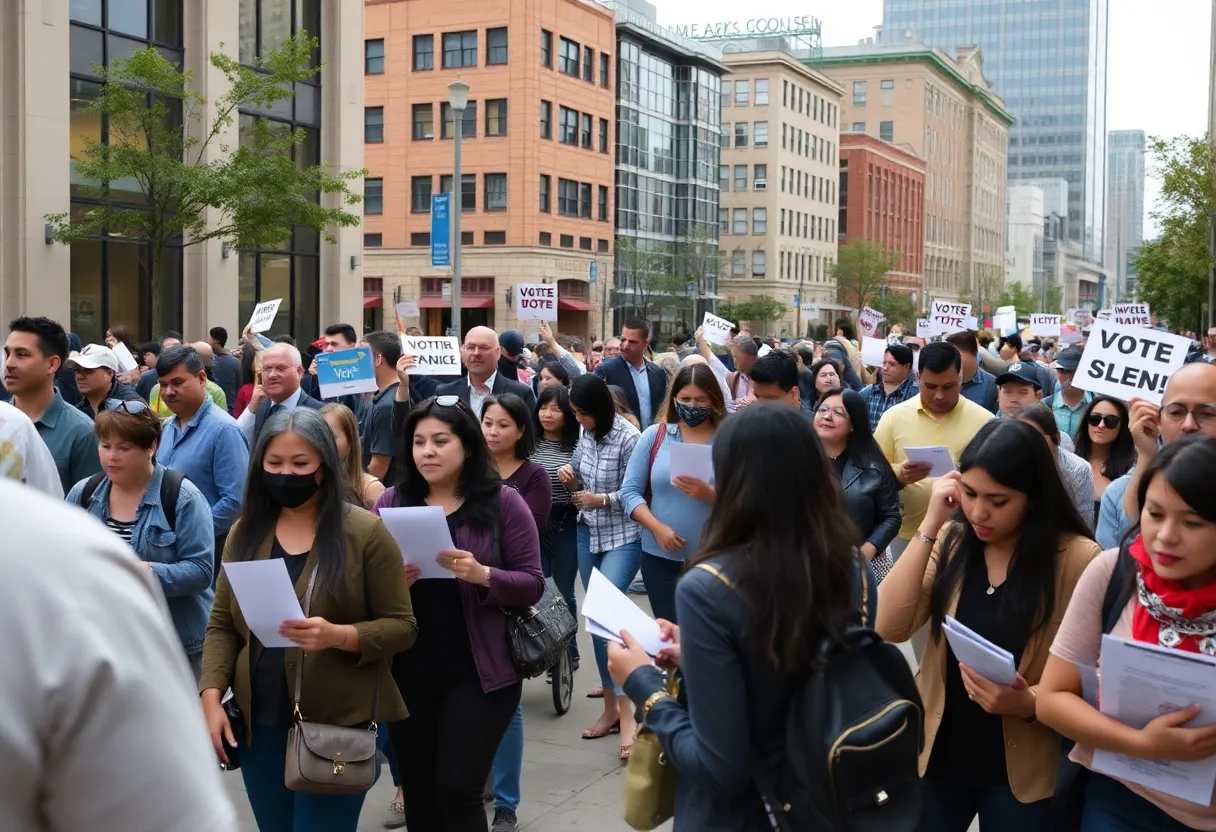News Summary
The U.S. Department of Justice is intensifying its antitrust case against RealPage and several major apartment landlords in San Antonio. The DOJ alleges that these landlords colluded to artificially inflate rents by sharing sensitive pricing information and using RealPage’s algorithms, negatively impacting competition. The investigation has drawn the attention of multiple states, and recent reports indicate that these practices cost renters billions in 2023. A proposed settlement involving one of the accused companies, Cortland, may set a precedent amidst growing scrutiny of rental pricing strategies.
San Antonio Landlords Accused of Rent Price-Fixing
In a significant move that could impact renters across the nation, the U.S. Department of Justice (DOJ) is ramping up its antitrust case against the technology company, RealPage, based in Richardson, Texas. This expansion throws the spotlight on several major apartment landlords, especially those operating in San Antonio, who are accused of colluding to artificially inflate rent prices.
The Allegations Unveiled
The DOJ has made some serious claims against six large apartment owner companies, asserting that these firms worked together to raise rents. The accused include names like Willow Bridge Property Co., Greystar, Blackstone’s LivCor, Camden Property Trust, Cushman & Wakefield Inc./Pinnacle Property Management Services LLC, and Cortland Management LLC. Notably, four of these companies have properties in the San Antonio area.
It’s noteworthy that these six landlords manage over 1.3 million rental units across a whopping 43 states and the District of Columbia. The DOJ claims these firms shared sensitive rental pricing information and leveraged RealPage’s pricing algorithms, which reportedly helped them synchronize their rent levels, creating a situation detrimental to competition.
How Do Algorithms Play Into This?
RealPage offers software that provides near-real-time pricing recommendations to landlords. This means that landlords can potentially align their pricing strategies, stifling competition in the rental market. The acting assistant attorney general has pointed out that as many Americans grapple with the struggle of housing affordability, these landlords were allegedly using algorithmic tools to keep rents high.
Responses from the Accused
The companies named in the lawsuit are pushing back against these allegations. For instance, Camden Property Trust disagrees with the DOJ’s claims and plans to ask for the case to be dismissed, stating that any rise in rental rates can largely be attributed to government regulations. Similarly, Greystar has denied any wrongdoing and insists that they do not participate in anti-competitive practices. Pinnacle claims that it is merely a management company, suggesting that the ultimate pricing decisions rest with the landlords themselves.
A Settlement in Progress
Among the accused, Cortland appears to be taking a more conciliatory approach. They have reached a proposed settlement with the DOJ, agreeing to cooperate with the investigation and discontinue the use of third-party algorithms for setting rental prices. This move could potentially serve as a precedent for other firms involved in the case.
Financial Impact on Renters
A recent analysis from the White House points to the staggering economic effects of algorithmic pricing practices, estimating that in 2023, such methods, including the ones employed by RealPage, have collectively cost renters around $3.8 billion. This highlights the broader implications of the ongoing investigation, especially as renters continue to face considerable affordability challenges.
The Bigger Picture
Currently, the rental landscape in the U.S. is challenging, with about half of all renters spending more than 30% of their income on rent and utilities as of 2022. With Illinois and Massachusetts joining the DOJ’s lawsuit coalition, the total number of co-plaintiffs has now swelled to ten, hinting at a growing concern about rental price-fixing in the industry.
Conclusion
As this case unfolds, all eyes will be on how it develops, especially considering the immense impact it could have on affordability for renters in San Antonio and beyond. The outcomes of these allegations and the actions taken by the involved companies will be crucial as we look to see changes in the way rental prices are structured, and whether or not the rental market can become fairer for everyday consumers.
Deeper Dive: News & Info About This Topic
HERE Resources
Minnesota’s New Laws Set to Transform Life in 2025
Additional Resources
- San Antonio Express-News
- Wikipedia: Antitrust Law
- AP News
- Google Search: RealPage DOJ Lawsuit
- Texas Monthly
- Google Scholar: Rental Price Fixing
- Hoodline
- Encyclopedia Britannica: Rental Market
- Dallas News
- Google News: RealPage Rental Inflation







